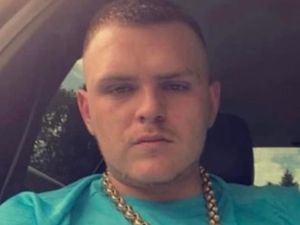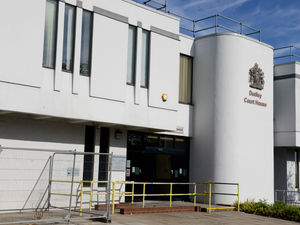Child grooming on social media rises in Black Country and Staffordshire
The number of reports of children being groomed online in the Black Country and Staffordshire has increased after a new law was introduced, figures have shown.

The crime of sexual communication with a child came into force on April 3 2017, following an NSPCC campaign, and in the first 18 months of the new law, up until September 2018, a total of 5,161 crimes were reported to police across the UK.
Of those crimes reported, 48 were recorded by West Midlands Police, 85 in Staffordshire and 140 in West Mercia.
Alongside this, figures also show that there has been a 200 per cent rise in the recorded use of Instagram to target and abuse children across the UK.
From April to September 2017 Instagram was used by groomers 126 times in the UK, whereas in the same six-month period in 2018 figures show it was used 428 times.
Across all social media sites police recorded 1,944 grooming offences from April-September 2018, with 32 per cent of them coming from Instagram, 23 per cent on Facebook and 14 per cent on Snapchat.
The data obtained from 39 of the 43 forces in England and Wales, from a Freedom of Information request, also shows that in the latest six-month period, girls aged 12 to 15 were most likely to be targeted by groomers and victims included children as young as five years old.
Now, children's charity the NSPCC is urging the government to enforce a legal duty of care to children on social networks, with hefty fines if companies fail to safeguard their youngest users.
Peter Wanless, NSPCC chief executive, said: “These figures are overwhelming evidence that keeping children safe cannot be left to social networks.
“We cannot wait for the next tragedy before tech companies are made to act.
Crucial
"It is hugely concerning to see the sharp spike in grooming offences on Instagram, and it is vital that the platform designs basic protection more carefully into the service it offers young people.
“After 10 years of failed self-regulation by social networks, it is crucial that the Government’s imminent Online Harms White Paper includes new laws that tackle online grooming once and for all.”
Emily, whose name has been changed to protect her identity, was 13 when she was groomed online by a 24-year-old man.
She first met him in person because he was dating an older girl she knew. He had introduced himself and initially said he was 16, which quickly changed to 18. She told him she was 13. Later that evening he added her on Facebook and Snapchat.
Emily said: “It escalated very quickly from there. We exchanged texts which quickly became sexual, then photos and videos before arranging for him to come and pick me up after school.
"He drove me somewhere quiet and took me into the woods and had sex with me.
"He drove me in the direction of home straight afterwards, refusing to even talk, and then kicked me out of the car at the traffic lights. This was my first sexual experience.”
Emily’s mother Wendy, whose name has also been changed, said: “We felt as though we had failed as parents – we knew about these social media sites, we thought we were doing everything we could to ensure our children’s safety when they were online, but we still couldn’t protect Emily.
“Somebody has got to take responsibility for what happens to children on their platforms. Simply put, if social media didn’t exist, this would never have happened to Emily."





